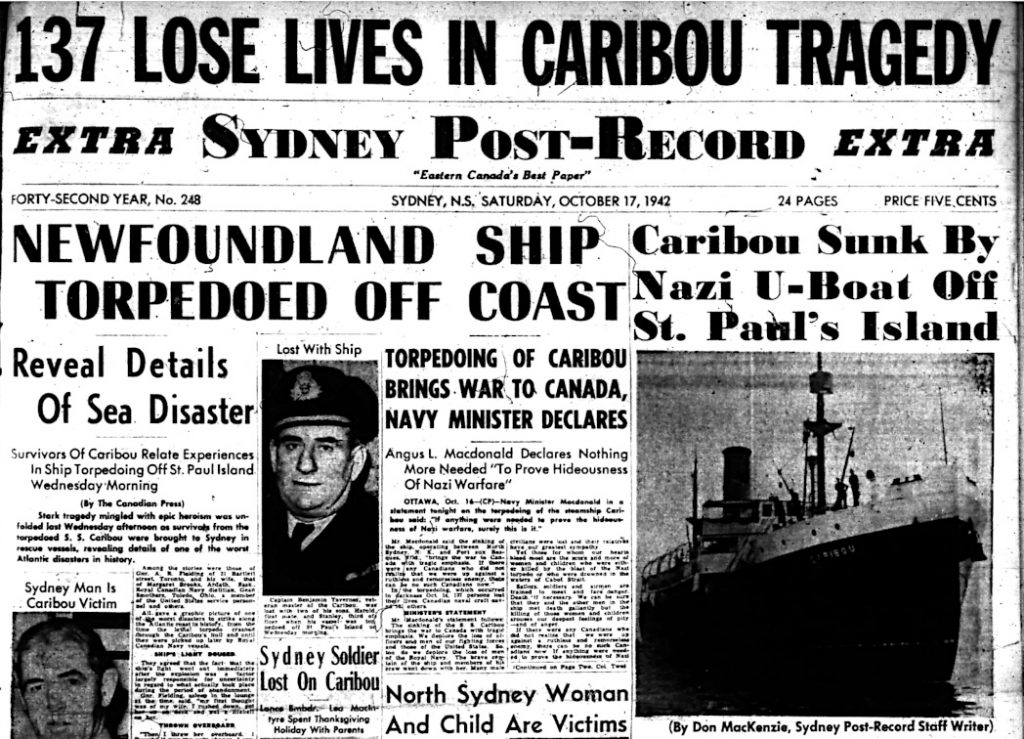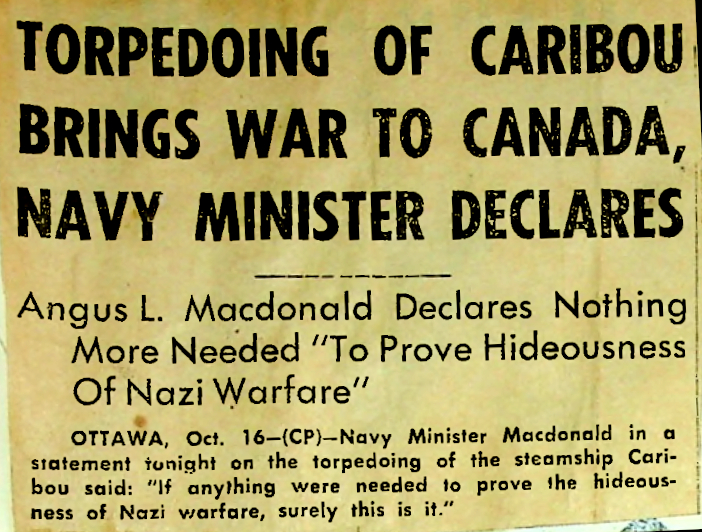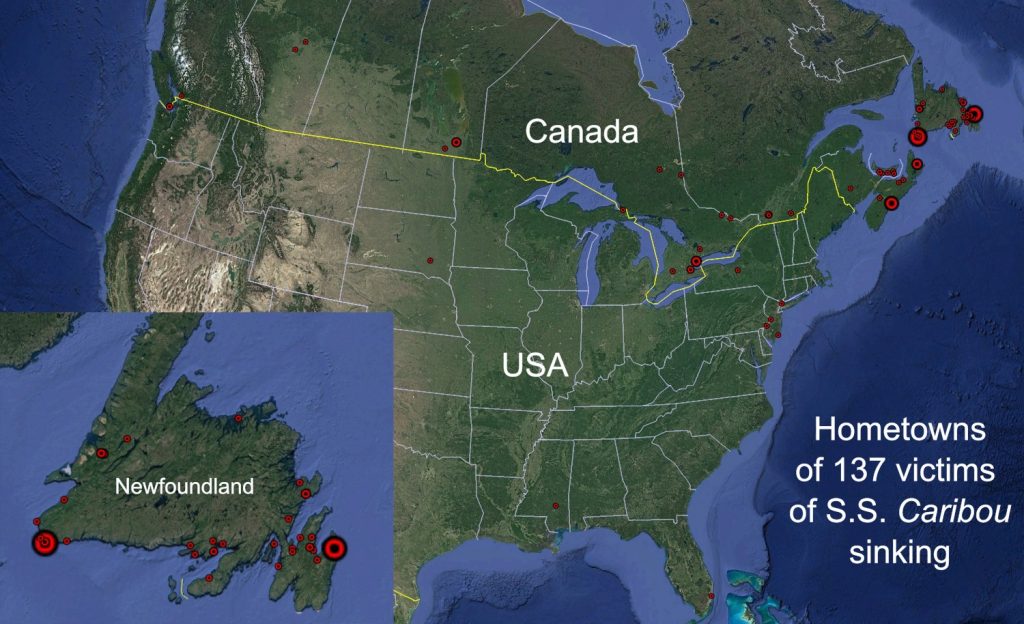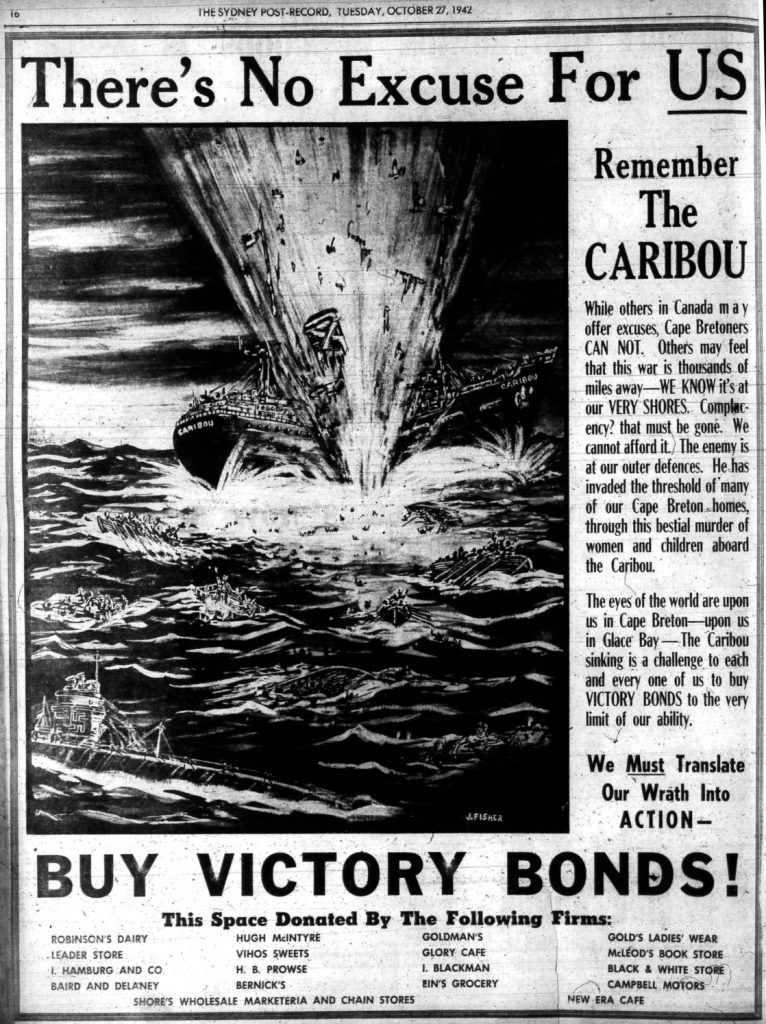Shock and anger in Newfoundland and Canada
A week after the sinking, Newfoundland Railway agent Charles Moore recalled the submarine ramming lifeboats and machine-gunning survivors on that fateful night. Newspapers across North America carried Moore’s account, stoking hatred of the Nazi regime. One editorial described an enemy that “rose to the surface to gloat over its dead”. In actual fact, the logbooks of both U-69 and H.M.C.S. Grandmere confirm that the U-boat never surfaced after the attack.
S.S. Caribou’s only surviving officer, Tom Fleming remembered Captain Taverner complaining about having to make night crossings. Victim’s families blamed the Navy for not listening to Ben Taverner. Defenders of the military argued that the Newfoundland Railway set the schedule. In Corner Brook’s Western Star, Pilot Officer John Barrett’s grieving father asked why the railway management had been “needlessly endangering human lives—the lives of helpless women and innocent children” by not changing “the hours of the Cabot Strait service”.
Most North Americans raged against Germany. Seven days after Able Seaman Cecil Boohan was rescued from a raft, a celebrity interviewed him in Ottawa’s Capital Theatre at a Victory Bonds fundraiser broadcast on national radio. “Before leaving the stage the seaman said he was anxious to get back to sea and ‘to help get that German sub’.”
But, Boohan refused to be photographed, “I didn’t do anything but jump into the water when the boat was sunk.” Even without his photo, the survivors’ stories helped launch a campaign to raise three-quarters of a billion dollars for the war effort.





